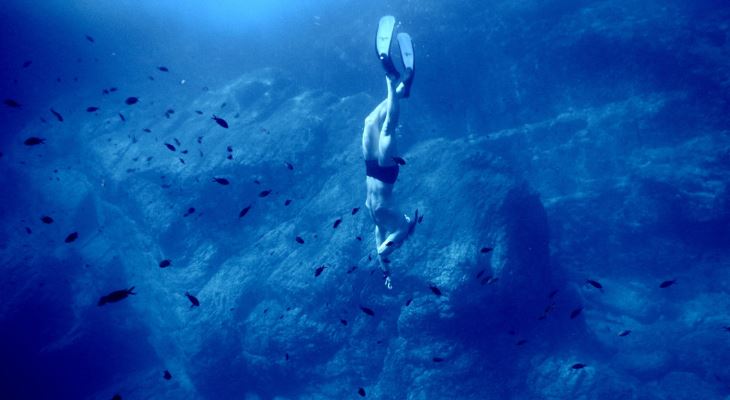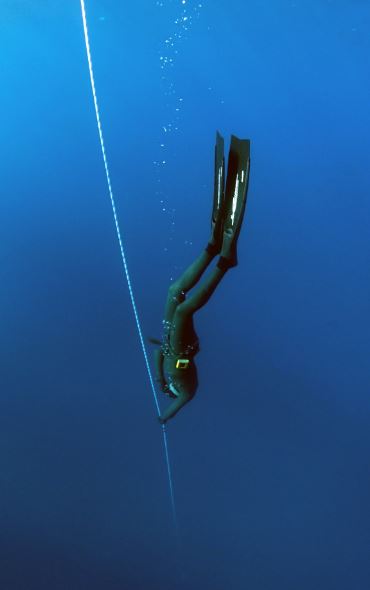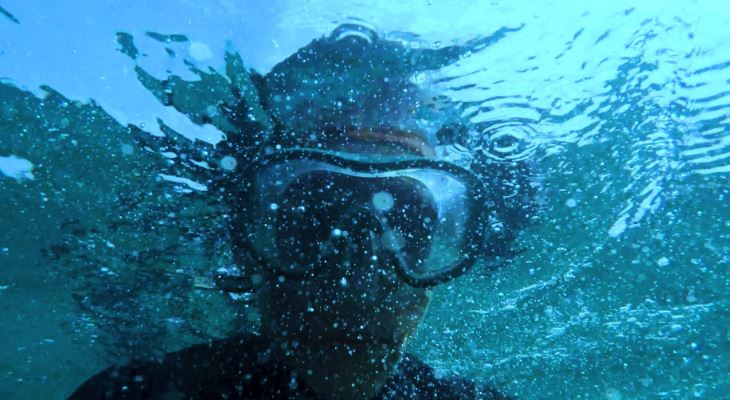Following this summer’s fatalities, local free divers weigh in: is freediving really safe?
After a spate of fatal incidents, we ask local free divers the obvious question.
Following the tragic death of young divers Neil Zammit and Simon Psaila a few weeks ago, attention has turned to whether freediving can truly be considered a safe sport. Contacted for comment, the Professional Diving Schools Association (PDSA) said that freediving is “safe but, as with any activity, you have to respect some rules.” But what do practitioners think, and how can any risks be minimised?

Claude Sciberras - Dive Systems Malta
1. Is freediving safe?
Is driving safe? Is going on an aeroplane safe? Is crossing the road safe? Of course, all of these are safe, but like everything in life, there are risks and there are dangers.
2. If the sport is safe within limits, what are these limits?
The limits are usually your personal limits and your training limits. We are lucky to be surrounded by the sea and most of us Maltese get to do some form of snorkelling and freediving from a very young age. This, however, means that most of us do not have formal training for freediving, and so we might have some bad habits which might make our freediving less safe or actually risky.
3. How can people practise the sport safely?
The main risks are related to entanglement and blackouts. The first can happen to anyone at any depth, and one can reduce risks, first of all, by using caution and being very aware of one's surroundings. Secondly, you need to remain calm when entangled, as panicking will make things worse. Finally, always have a knife or a line cutter with you to be able to calmly get out of trouble. Blackouts are more complex, and one needs to understand the science behind them but, more importantly, one must be careful not to push the boundaries too far.
Hyperventilation should not be done at all, and proper breathing practices must be used. One needs to also practice freediving with a buddy who can dive to the same depths and who is well-trained to be able to help you when you are in trouble. All these things can be learned when doing a freediving course. Most freedivers do not do this course, and the fact that there is no requirement for training (unlike say scuba diving) means that only a few do the course, and its usually out of their own free will.
4. Do you think there should be regulations tied to the sport?
Regulations, when done with the right spirit, are always good to have but, more importantly, we need enforcement.
David Watson - One Breath Freediving

Jakob Boman / Unsplash
1. Is freediving safe?
Freediving is an extremely safe sport and is the cause of fewer accidents than other water sports, including scuba diving.
2. If the sport is safe within limits, what are these limits? How can people practise the sport safely?
Our limits vary from person to person and, for each person, from day to day. Limits change over time as we become more proficient and as we improve as divers. By taking a proper freediving course, you can progress and explore your limits safely in the presence of an experienced instructor. Recreational freediving is a fun and safe way to explore the marine world around us, as well as exploring our own mind and bodies. Competitive freediving is different, as the athletes are extremely well trained and know their bodies well, so they can push themselves further.
3. How can people practise the sport safely?
People can practise the sport safely by following a few golden rules. Firstly, we must never, ever freedive alone. It is important that we have a buddy to watch us on our dives at all times. Secondly, it is extremely important to take a freediving course with a qualified instructor, and with one of the recognised freediving agencies, such as AIDA (the international governing body for freediving). Here, among other things, you will learn how to breathe correctly and safely to prepare for the dive and how to correctly rescue someone in trouble or prevent an accident in the first place.
4. Do you think there should be regulations tied to the sport?
There are regulations tied to the sport. To be a qualified and active freediving instructor, I have to pass a rigorous course and exam, and I must keep active with my teaching, which is monitored through my students. I must also maintain valid insurance for all of my students during the courses they take. All courses have a heavy emphasis on safety and rescue, and highlight the dangers of freediving alone.

Marco Marzio – freediving instructor
1. Is freediving safe?
Yes, freediving is a safe sport, if practised following some basic procedures.
2. If the sport is safe within limits, what are these limits? How can people practise the sport safely?
The limits are those imposed by our training and knowledge. You can practice this sport safely, following a simple course, which besides the various techniques of swimming and breathing, teaches us also the safety procedures, what we can and cannot do, and when we should go out to sea.
3. Do you think there should be regulations tied to the sport?
I see that young people too often learn from friends who in turn have learned from others, but have never done a course. This has always been a very cheap sport, and people have always approached freediving with the idea that they just need a mask and a pair of fins to start, so why spend €300 for a course? I think that there is a need for more responsibility regarding freediving.